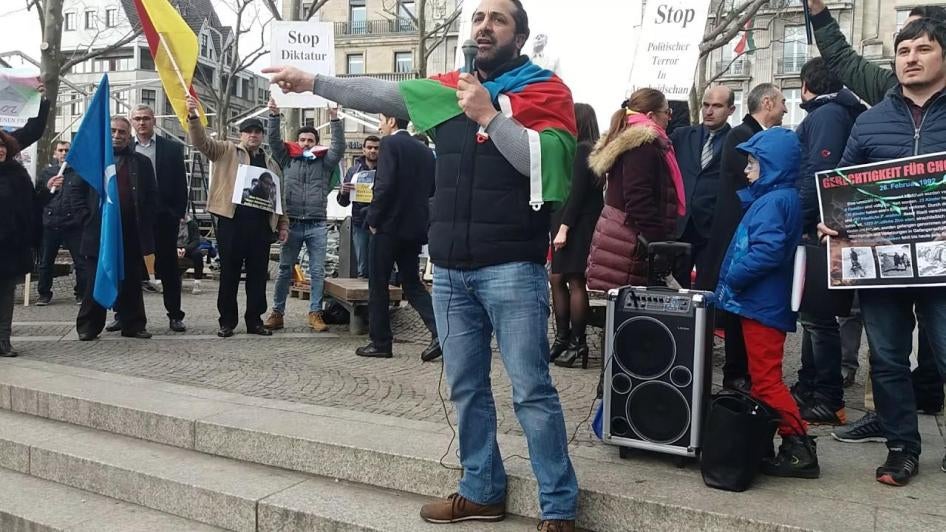On February 18, Ordukhan Teymurkhan, a 46-year-old Azerbaijani activist living in exile in The Netherlands, got a call from Baku, Azerbaijan’s capital. He assumed it was one of his relatives or a friend calling to check on him. Instead, it was a police officer: Officials had detained 12 of Teymurkhan’s relatives, including a 2-year-old niece.
Teymurkhan, a video blogger and social media activist, recorded the call, which included a police officer blaming him for the situation his relatives were in. The officer then handed the phone to Teymurkhan’s sister. She can be heard on the recording crying desperately and begging Teymurkhan to stop criticizing the government so that the authorities would release her and the others. Teymurkhan refused to back down, called the officials out on their illegal acts, and went public about the threats.
A day later, the authorities released most of Teymurkhan’s relatives, but a court ordered his elder brother Khanlar Dadashov and his nephew Sabuhi Zeynalov to serve 30 days’ detention for allegedly disobeying police orders.
The day Teymurkhan received the call, he had participated in a protest in Cologne, Germany. He chanted slogans urging the Azerbaijani government to release unjustly imprisoned activists and fight corruption in the country. He was doing so in defiance of past threats and harassment of his relatives back in Baku.
Police have regularly questioned Teymurkhan’s relatives, subjected them to surveillance, and threatened them with criminal charges unless Teymukhan stopped his activism abroad. In late January, a group of his relatives publicly disowned him to avoid retaliation by authorities for his vocal criticism. But this was not enough to protect them.
Teymurkhan’s case is not an exception. Following the Azerbaijani government’s vicious crackdown on critics and dissenting voices, many activists found refuge in foreign countries and often continued their vocal activism in exile. Human Rights Watch has documented how Azerbaijani authorities harassed, arbitrarily arrested, and prosecuted activists’ family members with the apparent aim of compelling activists to stop their work.
Azerbaijani authorities should immediately end this collective punishment of activists’ family members, and Azerbaijan’s international partners should publicly condemn such actions.









